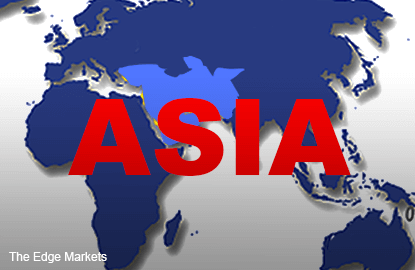
GEORGE TOWN (Oct 12): The agreement reached on the recently concluded talks of the Trans-Pacific Partnership (TPP) trade deal is credit positive for all 12 participating countries, but especially for those in Asia, said Moody's Investors Service today.
The deal will reduce the cost of trade and open up new investment opportunities to support growth, and greater access to the US for their goods should help make Asian countries the biggest beneficiaries in gross domestic product (GDP)-relative terms, said Moody's in a statement.
Its findings are contained in its new report titled Trans-Pacific Partnership to Bolster Trade and Growth, a Credit Positive.
Citing previous estimates done by analysts affiliated with the East-West Center and Peterson Institute for International Economics, Moody's noted that Vietnam would stand to gain additional income worth around 19% of 2014 GDP through 2025, with the TPP.
"Malaysia would gain income worth around 7% of its national output, and Japan, New Zealand and Singapore about 2% of their respective GDPs over the same period. Australia would gain a more modest 0.5%," it added.
Further for Malaysia, it also noted that recent comments by trade minister Datuk Seri Mustapa Mohamed suggest there were concessions on issues such as government procurement that had stalled previous bilateral trade negotiations with the US.
"These concessions are likely to be in line with ongoing reform programmes that have included the selective liberalisation of racial preferences in certain sectors, as well as bolstering the commercial orientation of state-owned enterprises," Moody's said in the report.
The free trade agreement is between the US (Aaa stable) and Australia (Aaa stable), Brunei (unrated), Canada (Aaa stable), Chile (Aa3 stable), Japan (A1 stable), Malaysia (A3 positive), Mexico (A3 stable), New Zealand (Aaa stable), Peru (A3 stable), Singapore (Aaa stable), and Vietnam (B1 stable).
Besides better market access, lower or eliminated tariffs, the TPP also set standards in areas including intellectual property rights, environmental and labour conditions, and government procurement, it noted.
"One modestly credit-negative aspect to the trade deal is that it could hurt governments' fiscal balances by reducing their customs revenues over the longer term. But additional receipts from an expected uptick in economic growth due to the agreement are likely to offset foregone tariff revenue," Moody's added.
The new trade deal, which reached an agreement on Oct 5, still needs to be ratified by member states within the next two years.
In Malaysia, the deal has sparked concerns, with critics describing the deal as nothing more than a move by the US to checkmate China's rising influence in the region, with warnings that Malaysia would lose more than it would gain.
Some primary objections came from fears that it would open the doors to biased arbitration favouring corporate interests above that of the sovereigns', and that it would restrict access to important goods such as cheaper medication.